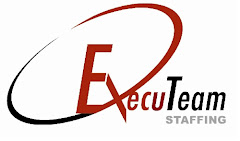
As top Cola brands fought to capture and sustain market share in an oversaturated soft drinks market, some very valuable marketing and branding lessons surfaced. What we learnt from the “Cola Wars” was that the fittest brand did not always thrive. On the contrary, ultimate success was the result of a shrewd branding strategy, one that truly differentiated the product from the crowd of “me too” competitors.
To combat 9.5% unemployment and competition from 14.6 million unemployed individuals, professionals and executives, too, are applying cutting-edge branding strategies to position themselves as a notch above the competition. When it comes to branding individuals, a resume is much like marketing collateral; it must be written in a compelling manner to position the candidate as the perfect solution for the employer’s needs.
Consider the following tips to create a brand-driven resume:
Identify your Unique Selling Proposition (USP)
Almost every candidate’s resume would convey attributes, such as hardworking, dedicated, team player, and other “everyone-has-them” skills. If all job seekers are hardworking and dedicated, whom should the employer call for an interview? This is where USP comes into play.
Ask yourself and your peers, superiors, team members, colleagues, and family members questions, such as “How am I different from the rest of the employees?,” “What is my value proposition?,” “In what ways do I contribute to the organization?”
Once you have identified your USP, showcase it on your resume. The following two resume examples demonstrate how a strong USP can capture the employer’s attention.
Weak strategy:
“Drive consistent sales growth for XYZ Company.”
Better:
“Top-producing sales professional who leverages relationship management skills to penetrate hard-to-influence Fortune 500 accounts and generate 120% revenue growth every year.”
The second candidate positions himself as a “top-producing professional” who leverages “relationship management skills” to achieve sales growth.
Create branding statements as headlines
Resume objectives, as they are generally written by many job seekers, don’t offer much benefit, especially if the objective statement is a cookie-cutter version, such as “Motivated professional seeking a promising position that offers opportunity for advancement and growth.”
What exactly did this objective convey? Nothing!
Branding statements and headlines are the modern-day equivalents of resume objectives. They pitch your most promising differentiation strategy in a few brief sentences. The following branding statement clarifies this concept:
Technically-proficient project manager who specializes in managing multi-million dollar, cutting-edge green solutions projects!
Over 18 years’ experience in deploying green solutions projects for Fortune 100 companies. Outstanding reputation as a project leader who turns-around failing projects into highly successful initiatives.
Translate benefits for the hiring manager
Take action statements a step further and emphasize the benefits of hiring you. How have you benefited your past employers and in what ways can you benefit your future employers?
As opposed to saying “Offer ten years’ experience in plant management,” translate benefits of hiring you.
“With over a decade of plant management experience, I am able to develop growth-focused solutions for challenging problems. At ABX Company, I was able to develop a powerful assembly line strategy that enabled workers to increase productivity by over 10% while simultaneously cutting production time by over 18 hours and labor costs by 6%.”
The candidate translated the benefits of hiring him -- improved productivity, cost savings, and optimal efficiency.
Modern resumes have advanced significantly from the previous century, when the status of a resume was downplayed to a typed employment chronology. Contemporary resume styles leverage branding and marketing concepts to differentiate and aptly position candidates as unique solutions for twenty-first century corporate challenges.
- Nimish Thakkar, Resume Writer and Career Coach
From www.net-temps.com










